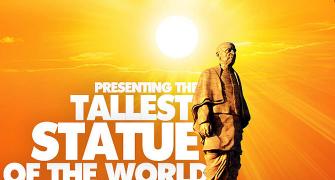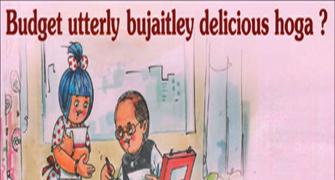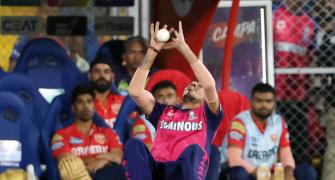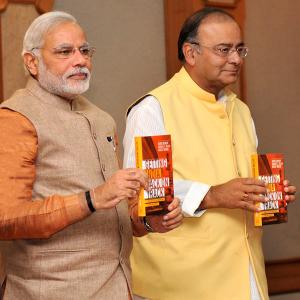Though not a blockbuster budget it does not undermine the fact that key issues were addressed and the finance minister certainly did not under-deliver, says Vatsal Srivastava.
 In arguably the most anticipated Budget of the last decade, Finance Minister Arun Jaitley began by admitting that a single Budget cannot prove to be a magic wand for India’s woes but it intends to put the economy at a sustained growth rate of 7-8 per cent in 3-4 years. He noted that the global macro factors were improving and that the end of the US unconventional monetary policy regime and its implications on our domestic economy must be analysed carefully.
In arguably the most anticipated Budget of the last decade, Finance Minister Arun Jaitley began by admitting that a single Budget cannot prove to be a magic wand for India’s woes but it intends to put the economy at a sustained growth rate of 7-8 per cent in 3-4 years. He noted that the global macro factors were improving and that the end of the US unconventional monetary policy regime and its implications on our domestic economy must be analysed carefully.
As Jaitley noted, "we will leave no stone unturned in creating a vibrant India’’. Below are a few points to gauge how close or how far ‘’ache din’’ really are.
Please click here for the Complete Coverage of Budget 2014 -15
Firstly, there was positive news on the most important macro metric the financial markets have been focusing on. Jaitley noted that the fiscal deficit target of 4.1 per cent of GDP set out by former Finance Minister P Chidambaram cannot be met and has his yes on 4.5 per cent of GDP as a target.
He admitted that this task would be ‘daunting’ and that going forward further fiscal tightening is on the cards. FY 2016 fiscal target has been set at 3.6 per cent of GDP and 3 per cent of GDP for FY 2017. Economists, rating agencies and business houses will take this as a welcome step as fiscal prudence was one of their main concerns going into this Budget. He added that the tax to GDP ratio must be raised and tax collections must increase going forward.
Secondly, as expected there was no clarity on Goods and Services Tax. Although this was being factored in the market, Jaitley had a chance to deliver some big bang announcements. It was simply the old talk - the government aims to approve the GST by the end of the year. On the retrospective tax front, there will not be any change in the rules, i.e. it would not be repealed. He added that all pending cases of retrospective tax for indirect transfers will be examined by a high level committee before any action is taken. Note, no specific comment on the Vodafone case was made.
Further, as expected, the cap on foreign direct investment in Defence was raised to 49 per cent (retain Indian control). The FDI cap in insurance was also raised to 49 per cent (control via FIPB route). Both these measures will allow fresh infuse of capital into these firms as well as enable the listing of new insurers.
Talking about PSU recapitalisation, Jaitley said that a sum of Rs 2 lakh crore was needed. They plan to retain majority control in PSU banks and push retail FPOs to encourage retail investor participation. Further, the FM proposed a National Housing Banking programme with setting aside Rs 8,000 cr for this program.
On the infrastructure front, capital outlay for defence was raised by Rs 5,0000 crore over interim budget. Jaitley earmarked Rs 7,060 crore to create 100 "smart cities" and proposed Rs 5,000 crore for warehousing capacity. Rs 10,000 crore of private capital will be allocated to start-up companies and Rs 37,800 crore of investment in national and state highways.
India has emerged as the largest PPP market in the world and Jaitley added that there is need to develop more sophisticated models with quick redressal mechanism in PPP contracts. However, the market still lacks clarity on how this infrastructure development will be financed.
And as expected, the UPA’s pet scheme- MNREGA will be tweaked. Jaitley gave no details on funds allocated but just said that the program will now focus on better and more efficient asset creation. How this will ensure no leakages and the end to corruption in MNREGA still remains to be seen. Net net, most social policy experts agree that this was a necessary step to take.
Overall, this was not a blockbuster budget. This was not Jaitley’s 1991 moment as many irrational exuberant strategists on Dalal Street were arguing. But that does not undermine the fact that key issues were addressed and the finance minister certainly did not under deliver. This is the key point- Modi-Jaitley's economic liberalism is in evidence.
Please click here for the Complete Coverage of Budget 2014 -15









